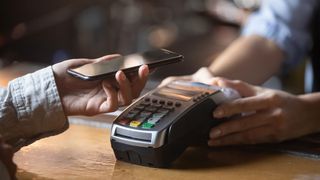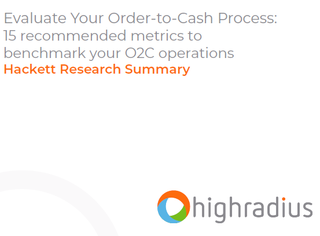Is the cashless society finally here?
The cashless society has been forecast for decades, yet cash remains in rude health. Could the pandemic finally change that?

This article originally appeared in Issue 12 of IT Pro 20/20, available here. To receive each new issue in your inbox, click here.
In September, it was reported that the Royal Mint may stop making two pound and two pence coins for at least 10 years due to a glut of stock. This doesn’t mean these coins are being withdrawn. Indeed, it's more the case that there are far too many currently in circulation, so there’s no need to replace them. One of the main driving forces for this over the course of many years has been the rise of technologies such as contactless payment. Nevertheless, until recently many, if not most, people still used cash for at least some purchases. Thanks to the coronavirus pandemic, however, contactless payments, either by card or smartphone, has become the preferred way to pay for both consumers and sellers. Does this mean we could finally be on the cusp of becoming a cashless society?
Speaking to IT Pro, Sulabh Agarwal, global payments lead at Accenture says: “COVID-19 has accelerated the decline in cash, with usage in the UK dropping faster than anywhere else in Europe. We also expect this to drive significant adoption of contactless payments. Our recent global survey of consumers suggests the crisis will drive permanent change to consumer behaviour. However, we don’t expect cash to disappear altogether due to the need for financial inclusion of potentially vulnerable or unbanked people in society.”
This is a problem that has given other nations pause for thought. Other countries – notably Sweden and Denmark – have made great strides towards a cashless society, but even here, governments have slowed their initiatives for fear it may mean some members of their societies are unable to efficiently and cost-effectively manage their money.
Currency matters
For some groups, cash remains their primary payment method and any wholesale move to even a partial cashless society could have an adverse impact on them. Research in 2019 from Which? showed a sharp decline in the number of ATMs available, with one in 10 closing over the previous 17 months. This decline isn’t surprising, as the cash infrastructure across the UK costs the retail banks who run it around £5 billion a year. Reducing this cost is a clear driver behind the rise of cashless payments and a reduction in the access to cash.
The risk is that once the cash infrastructure is reduced or even removed, it's impossible to replace it. Sweden, which has one of the highest adoption rates of cashless payments, recognised the risks and has taken action to slow the trend until more research into the impact this could have on vulnerable groups can be done.
Mats Dillén, head of a Swedish parliamentary committee said: “We need to pause and think about whether this is good or bad, and not just sit back and let it happen. If cash disappears, that would be a big change, with major implications for society and the economy.”
Get the ITPro. daily newsletter
Receive our latest news, industry updates, featured resources and more. Sign up today to receive our FREE report on AI cyber crime & security - newly updated for 2024.
Cash for the so-called ‘unbanked’ continues to be vital. According to the Fair4All Finance survey, there are over a million adults in the UK without a bank account, all of whom will rely on cash to receive and spend money.

Evaluate your order-to-cash process
15 recommended metrics to benchmark your O2C operations
The March 2019 report from Access to Cash Review also found that 17% of the UK population – over eight million adults – would struggle to cope in a cashless society. This report refuted the claim that older generations are the most likely to be impacted if cash as a payment mechanism rapidly declined. Instead, it found those who would be the most disadvantaged are people living in poverty.
Speaking to IT Pro, Natalie Ceeney, chair of the Access to Cash Review says: “If we don’t ensure there is a place for everyone in a new digital-only society, we could see the cashless debate develop into one that separates the ‘haves’ and the ‘have nots’. We are already seeing evidence of this throughout the pandemic as the most vulnerable in our society (typically those who are most reliant upon cash) are refused by shops when trying to purchase essential items with cash.
“Therefore, it’s more important than ever that FinTechs, challenger banks, regulators and consumer bodies all work together to develop digital solutions that won’t exclude anyone from a digital society. In the meantime, it’s critical we find ways to protect the viability of cash, for consumers and communities alike.”
Where people use cash is also a critical component to understand in the context of a cashless society. Figures from the Association of Convenience Stores’ 2018, 2019 and 2020 Local Shop Reports showed that 100% of its members accepted cash, and access to a cash machine is consistently rated as one of the most important services offered by this type of shop by customers. Indeed, while the number of free and fee-charging cash machines was steady through 2018 and 2019 – with 46% and 18% of shops offering them respectively – this figure rose in 2020 to 49% and 22%.
There are signs even here of the decline in cash, however. The number of local shops accepting non-cash payments has grown significantly, for example. In 2018, 94% accepted debit card payment, 88% accepted credit card payment, 80% accepted contactless payment, and 63% accepted mobile payment. By 2020, these figures had all increased, with the most significant increases being in contactless payments (88%) and mobile payments (80%). The response to the COVID-19 pandemic has also had an effect, with 69% of shops saying they were encouraging customers to use contactless over other forms of payment.
There are other disadvantages to cash transactions for businesses as well. Those that take cash payments, hold cash on their premises, and then need to deposit cash at their bank, face security concerns. The steady closure of bank branches across the UK has also made it harder to pay in or withdraw physical money.
A cashless future?
Developments in the FinTech sector, challenger banks, and the Open Banking initiative are all converging and cash could eventually fall out of use. To say its demise is imminent, however, is premature.
In a future cashless society, if payment systems failed or were subject to a cyber attack, it could cause chaos. This isn’t an entirely hypothetical prospect, either. The 2018 visa payment network outage caused over five million transactions to fail across Europe – and it only lasted 10 hours. When foreign exchange firm Travelex was taken out by a cyber attack in early 2020, those reliant on services such as payment cards were unable to access their money – branches and kiosks, however, were still able to provide cash. Going further back, the April 2007 cyber attack against Estonia saw bank servers targeted, which in turn brought down online banking services and left cash machines sporadically out of service as well. For a country that had prided itself on being at the forefront of the quest to become a digital society, it was a significant blow.
In light of this, going completely cashless would require robust security systems and infrastructure in place first to avoid outages.
“Digital innovations from FinTech players that have led to the change in consumer payments habits in turn have an impact on British culture and behaviours,” says Agarwal. “However, as the behaviour continues to change and adapt, this breeds further innovation from all kinds of organisations, whether that be challenger banks or incumbent financial services providers.”
“There is no doubt that cash usage in the UK will continue to decline and, as a result … banks, retailers and regulators are working together to assess the options available to continue to enable access to cash for both consumers and SMBs.”
Is cash still king? Perhaps in some business sectors, but change is fast approaching, accelerated by the pandemic. As our relationship with cash changes, and as the infrastructure that supports it erodes, the future of cash as a wide-spread payment mechanism is in doubt. But as we have consistently seen in the past, cash has a very strong survival instinct.
David Howell is a freelance writer, journalist, broadcaster and content creator helping enterprises communicate.
Focussing on business and technology, he has a particular interest in how enterprises are using technology to connect with their customers using AI, VR and mobile innovation.
His work over the past 30 years has appeared in the national press and a diverse range of business and technology publications. You can follow David on LinkedIn.





